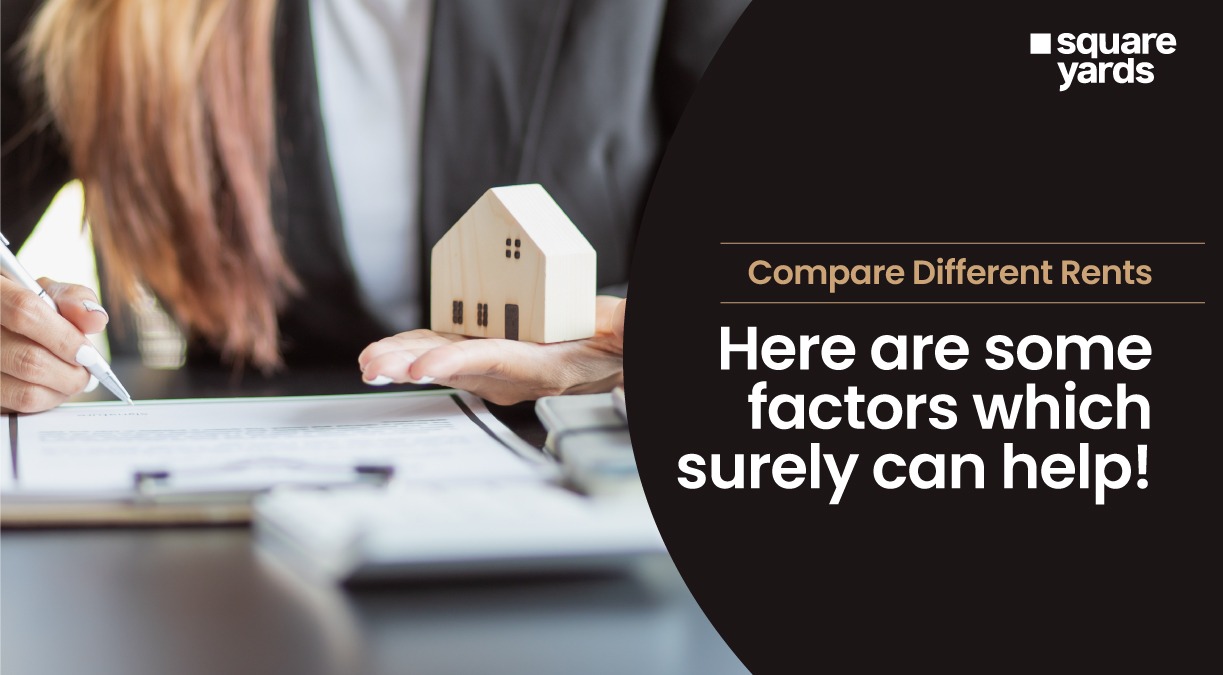When searching for a rental property, comparing rents is a crucial step in the decision-making process. Rent prices can vary significantly based on factors such as location, property type, amenities, and market conditions. To ensure you make an informed choice and find the best value for your budget, it's important to look into certain aspects, so that you are better equipped to evaluate different rental options and choose the one that meets your needs and financial capabilities.
Know the Market : Rents Variation
Before comparing rents, it's important to have a general understanding of the rental market in the area you're interested in. Research the average rental prices for similar properties in the neighborhood to establish a benchmark. This will help you identify any significant deviations from the average and evaluate the competitiveness of the rents you come across during your search.
Check out the Neighborhood
The location of a rental property plays a significant role in its rental price. Desirable neighborhoods or areas with excellent amenities and proximity to schools, shopping centers, and public transportation often command higher rents. Consider your preferences and needs regarding location and weigh them against the associated rental costs. Remember to assess the neighborhood's safety, cleanliness, and overall quality of life to ensure it aligns with your expectations.
Property Type and Size for Appropriate Rents
Different property types and sizes come with varying rental prices. For instance, apartments might be more affordable than single-family houses. Evaluate the type and size of the property you require based on your lifestyle, family size, and preferences. Consider the number of bedrooms, bathrooms, and overall square footage to determine if the rent is reasonable and justifiable.
Amenities and Facilities
Rental properties with additional amenities and facilities often come at a higher cost. Consider the amenities that are important to you, such as parking spaces, laundry facilities, fitness centers, swimming pools, or community spaces. Compare the rental prices of properties offering similar amenities to assess if the additional cost is justified based on your priorities and lifestyle.
Lease Terms and Flexibility
When comparing rents, it's essential to evaluate the lease terms and flexibility offered by the landlords or property management companies. Factors to consider include the lease duration, renewal options, rent increase policies, and any penalties for breaking the lease. Look for rental agreements that align with your needs and provide a reasonable level of flexibility.
Utilities and Additional Expenses
Inquire about the inclusion of utilities and other additional expenses in the rental price. Some properties may include water, electricity, or internet services in the rent, while others require tenants to pay for these separately. Assess the overall cost of utilities and additional expenses to accurately compare rents and determine the total financial commitment of each rental option.
Rents Condition and Maintenance of the Property
The condition and maintenance of the property can impact its rental price. Well-maintained properties that are in good condition and require minimal repairs may justify a higher rent. Conversely, properties in need of significant repairs or lacking proper maintenance should be reflected in a lower rental price. Take note of the property's condition during inspections and factor it into your comparison.
Rents, Landlord or Property Management Reputation
Consider the reputation and track record of the landlord or property management company when comparing rents. Read reviews or speak to current or previous tenants to gather insights into their responsiveness, professionalism, and overall satisfaction. A reliable and reputable landlord or property management team can provide a better rental experience, making the slightly higher rent worthwhile.
Availability of Parking
Parking availability is a crucial factor for many renters, especially in urban areas. Assess if the rental property provides dedicated parking spaces, whether they are included in the rent or come at an additional cost. Take into account the convenience and safety of parking options when comparing rents.
Conclusion
Comparing rents requires a systematic evaluation of various factors to ensure you find the right rental property at a fair price. Consider the rental market, location, property type, amenities, lease terms, additional expenses, condition, landlord reputation, parking availability, and, most importantly, your personal preferences and budget. By carefully assessing and comparing these factors, you can make an informed decision and secure a rental property that meets your needs and offers good value for your money.
FAQs
1: How can I determine a fair rental price for a property?
Determining a fair rental price involves considering factors such as location, property type, amenities, market conditions, and comparing it to the average rents in the area. Conduct thorough research and assess the value offered by the property to ensure the rent aligns with its features and market demand.
2: Are there any online resources or websites to compare rental prices?
Yes, several online resources and websites provide rental price comparisons for different areas and property types. Websites like Square Yards, Magic Bricks, 99 acres offer comprehensive rental listings with pricing details. These platforms allow you to refine your search and compare rents based on specific criteria.
3: How important is it to consider lease terms when comparing rents?
Lease terms play a crucial role in your rental experience. Consider factors such as lease duration, renewal options, rent increase policies, and penalties for breaking the lease. Choosing a rental property with favorable lease terms can provide flexibility and peace of mind throughout your tenancy.




